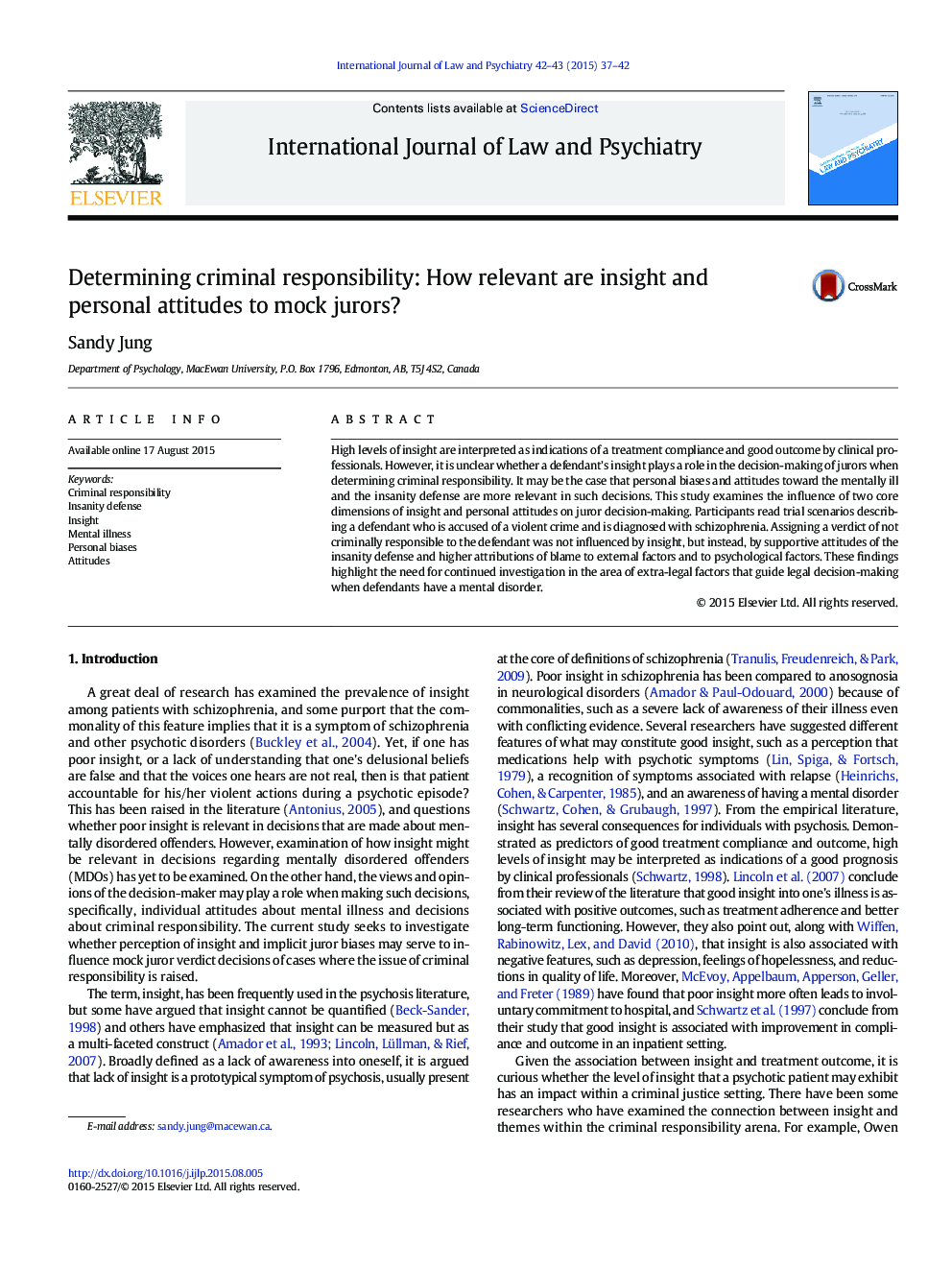| کد مقاله | کد نشریه | سال انتشار | مقاله انگلیسی | نسخه تمام متن |
|---|---|---|---|---|
| 100708 | 1422279 | 2015 | 6 صفحه PDF | دانلود رایگان |
High levels of insight are interpreted as indications of a treatment compliance and good outcome by clinical professionals. However, it is unclear whether a defendant's insight plays a role in the decision-making of jurors when determining criminal responsibility. It may be the case that personal biases and attitudes toward the mentally ill and the insanity defense are more relevant in such decisions. This study examines the influence of two core dimensions of insight and personal attitudes on juror decision-making. Participants read trial scenarios describing a defendant who is accused of a violent crime and is diagnosed with schizophrenia. Assigning a verdict of not criminally responsible to the defendant was not influenced by insight, but instead, by supportive attitudes of the insanity defense and higher attributions of blame to external factors and to psychological factors. These findings highlight the need for continued investigation in the area of extra-legal factors that guide legal decision-making when defendants have a mental disorder.
Journal: International Journal of Law and Psychiatry - Volumes 42–43, September–December 2015, Pages 37–42
